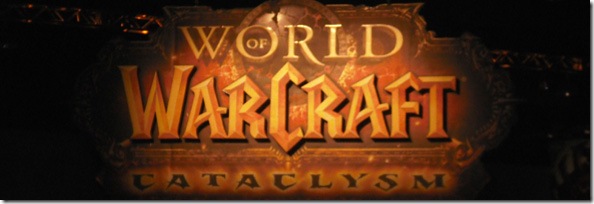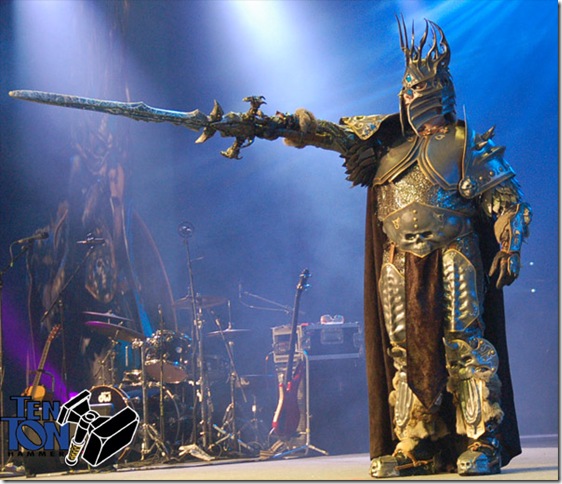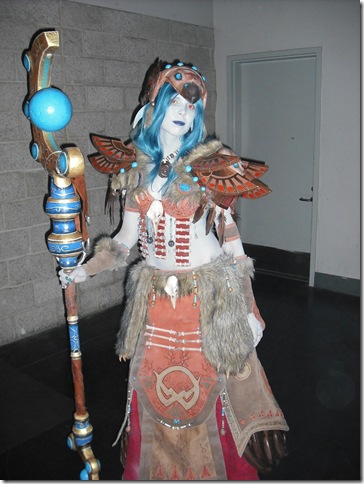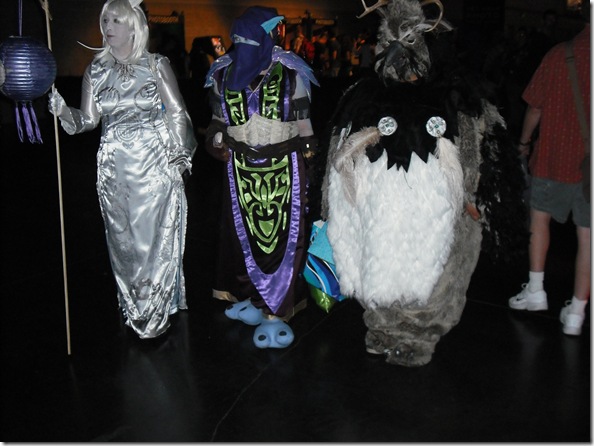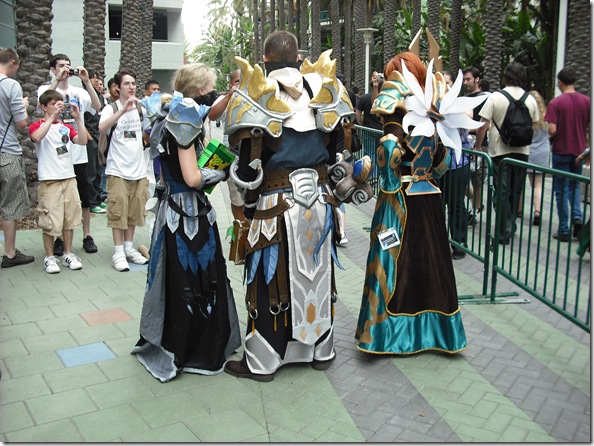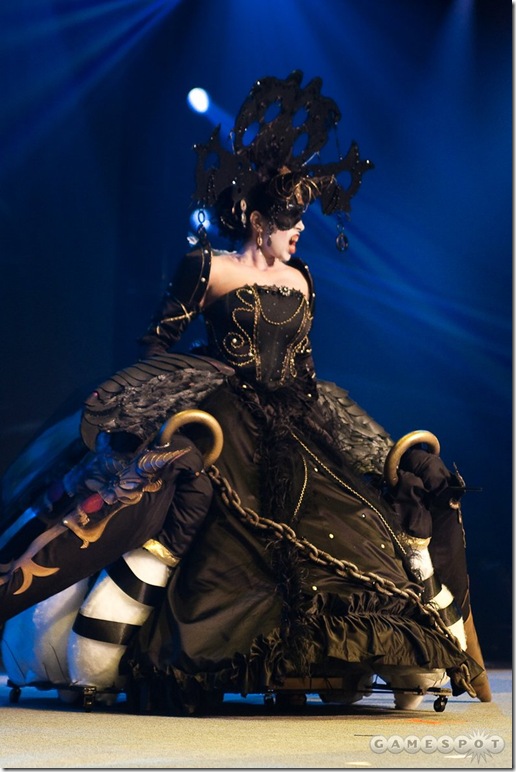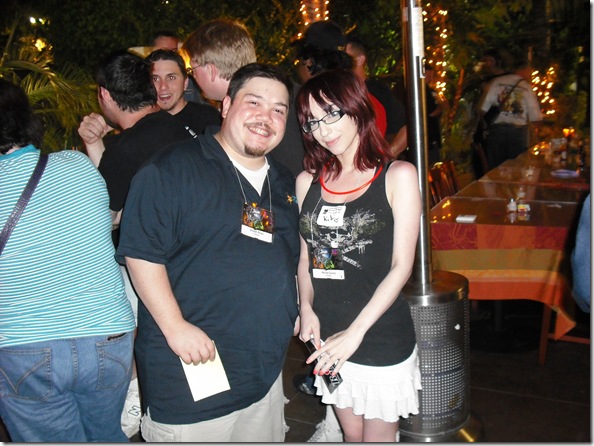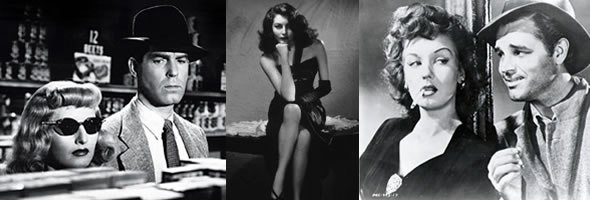
Shock. Frustration. Anger. Despair.
Before last week, these are words I never would have connected to my experience with World of Matticus, either as a writer or a reader. However, last week Lodur’s article on guild Egoists just left me cold. I’ve invoked these four words to let you the readers know what powerful effect such things can have, in the short term at least. Over the weekend I did a lot of reading and a lot of thinking, and I think I’m finally ready to explain why a recitation of stereotypes about women disturbed me so much. First of all, I would like to say that I mean Lodur no disrespect. I am quite sure that his intentions were good, and in his own mind, his article is not even about women.
This piece is my attempt to explain why these stereotypes can never be gender neutral, and also why they are so harmful. I will say that even in the places where Lodur claims that the stereotypes could apply to men or women, it is “feminine” behavior that he abhors. Mischief is caused either by women acting like women or men who, aberrantly, act like women. These negative stereotypes are, at their core, the narratives by which male gamers understand their experience of female gamers. They act as framing devices, informing all interactions with “real” women gamers. For this reason, the female gamer has to earn the grudging respect of her fellow players, while a male gamer may start out with a measure of respect and either keep it or lose it by his behavior.
We’ve Heard It All Before
When I read Lodur’s article, it struck me as eerily familiar. I’ve seen much the same recitation of feminine sins on the WoW forums, usually as a justification for excluding women from raiding guilds. Archetypes, or stereotypes, help people quickly make sense of the world according to pre-determined building blocks. Moreover, they are are seductive because they are impossible to disprove–everyone can think of some story that corresponds in some vague way to the type, and as far as most people are concerned, one example is sufficient to prove the rule. Moreover, they carry the weight of repetition. The Princess, the Diva, the Vixen, and the She-Wolf (or, if you like, the Femme Fatale) exist outside the world of MMOs. I am just as likely to see women called “Princesses” on Perez Hilton or the WE network as on the WoW forums. It doesn’t surprise me that all four terms are misogynist in origin: the stereotypes are very old, and they certainly pre-date the feminist movement of the 20th century.
Most intelligent people will agree that negative stereotypes don’t apply to everyone, but there’s usually the sense that they apply to most people in a given category. I challenge that notion. Stereotypes are convenient. They offer an easy framework. It’s possible to act them out, and it’s possible to interpret people’s actions according to them–but that does not make stereotypes just or accurate, not for anyone.
In this article, I’m going to go through each of these four types and explain how, in my limited personal experience, I’ve seen them used to restrict or punish female gamers. I want to recognize the power that these stereotypes have as a lens for understanding the gaming world. At the end of the article, I will draw some conclusions about online feminism and offer some suggestions on how players–both male and female–can work to establish equality in the virtual world. In this article, I’m not arguing for replacing Lodur’s terms with gender-neutral “PC” phrasing. Instead, I encourage people to discard stereotypes altogether–both their names and their content–and undertake the far more difficult task of addressing every situation in all its messy specificity.
The Princess
Calling someone a “princess” implies that she is selfish, entitled, and weak. Storybook princesses like Sleeping Beauty and Snow White need a man’s help to fully realize their life goals. Princesses don’t slay dragons–they get eaten by them. Remember Princess Peach from the Super Mario Brothers game? She’s an aloof, ungrateful brat who skips off to another castle the moment her brave hero unlocks her cage. My father, incidentally, calls me Princess when he wants to piss me off, especially if I’ve tried to borrow money. The very essence of the Princess is that she wants something for nothing, and she doesn’t want to say thank you. In Lodur’s article, he tries to explain how a Princess can be a man or a woman, but I don’t buy it. The Princess’s narrative is too coded in our culture as a woman’s story. The closest I can think of to the Princess stereotype for a man would be calling a gay man a “Queen”–but that means something quite different. It does strike me, writing this article, that women gamers face many of the same prejudices applied to gay male gamers, but that would be a topic for a different article. The Princess Gamer, as it were, is not very good at her chosen game. She’s nice and sweet, even “attractive,” if such can be said of a virtual personality, but she’s not capable of earning her place in a raid. She may be the significant other of a “real” raider–a sort of rider on his contract. Single or attached, the princess always needs someone to rescue her from her own inability to earn DKP!
My experience in WoW extends to three raiding guilds, one casual-raiding, one fairly serious guild, and one hardcore guild. In all three environments I have played with other women. Some of them were better-than-average, and some were worse. I can say with perfect confidence that my own skills are sufficient for a good raiding guild. I’m also not afraid to admit that several of the women I’ve played with were better than me! What I’ve never experienced, however, is a woman receiving preferential treatment despite poor play. Each guild had at least one woman officer, and in all three guilds, women received high-end loot. However, no one got more than her share. In fact, most of the women I knew received less than their male counterparts of similar skill and attendance. I’ve only seen one woman who managed to close this gap, truly getting an equal portion from the Loot Council without incurring any resentment in the process. She’s an excellent player who has never, ever talked on vent–the only way out of the Princess stereotype, it seems, is to effectively hide one’s gender. The shadow of the Princess haunts all women players who are “out” as women, and women raiders come under heavy scrutiny. In my recent experience, one woman player’s initiation period was extended far beyond what it should have been, just in case she made some mistakes down the line. When a woman is married to or dating another raider, she becomes doubly suspect. The assumption usually is that she plays only as a favor to her man, and that she sucks at the game. I’ll tell you now that my fiancé and I are a gaming couple, but good as he is, he follows me from guild to guild, not the other way around! However, people usually assume the opposite to be true.
The Diva
This idea brings me to the next stereotype, the Diva or Prima Donna, who by her very nature, wants everything. Unlike the Princess, the Diva gamer is actually a good player. The Diva is not like other women–she’s exceptional. The guild needs her, and she knows it. She makes ridiculous demands, and the rules don’t apply to her. Her attendance will be terrible, but she’ll expect the guild to save her a spot just in case she shows. Even if she has no DKP, she’ll expect people to pass her loot because, well, she’s the best. If there’s a new guild policy, she’ll certainly take offense to it. Unlike the Princess, who can be meek and beguiling, the Diva just can’t shut up. She always has an opinion, and she screams it from the mountaintop. Regarding the question of gender neutrality, I have, in fact, seen the terms Diva and Prima Donna applied to men, usually gay men. The implication of using the terms is that the man in question is behaving like a woman, and that such behavior is reprehensible. Even this category, which is the most applicable to men of all Lodur’s terms, never rises above is misogynist origins.
Every guild mistress or female guild officer confronts this stereotype at some point. I’ve been an officer in three guilds now, and I’m also a feminist. That means I rub elbows with the Diva stereotype any time I express my opinion. I am a thinking person, and I don’t lack for opinions. I’m not always right, of course, but I feel strongly about many things. I am quite capable of going on crusade if I feel that fairness is on the line. My point is that outspoken women incur risks in guilds that outspoken men do not. There’s a sense, especially in very hierarchical guilds, that not everyone has a right to an opinion. I’ve gotten more careful on this point over my years of gaming, and it sort of saddens me that I have done so. I’ve actually turned my mic off during raids to keep myself from speaking!
Lodur incorrectly connects up the word “virago” to vixen in his article, but I find it much more proper to give it a treatment under the diva category. A virago is a manly woman–a woman who looks, acts, or thinks like a man. The assumption is that “manly” behaviors like playing well, expressing one’s opinion, and getting angry are somehow unnatural in a woman. I’ve seen women respond in various ways to this idea, but most follow one of two patterns. Women seem to either embrace “masculine” behaviors or else over-perform “feminine” ones. In my former guild, an excellent female healer played two male toons and dissociated herself from all the other women raiders in an attempt to be “one of the guys.” She even named her main character after a beer! What she was doing, essentially, was getting herself out of the diva stereotype by embracing the virago. In my case, I’m always more likely to make a performance of my gender in ways that display to the guild. I collect cute pets, and I display them proudly in raids. I change my hairstyle often, and I comment on others’ trips to the barber shop. I talk about kittens, rainbows, and unicorns in guild chat. This assault of cute is, I think, meant to reassure my guild that I am, in fact, a “real” woman with a soft side, and not a heartless bitch. Both responses to the diva stereotype ring false to me–I suspect that neither represents the real player’s personality.
The Vixen, the She-Wolf, and the Bitch
I’ve deviated from Lodur’s formulation here in order to combine a group of like stereotypes. Each word refers to a female animal, and all three terms have to do with women’s sexuality. The Vixen is the seductress, the She-Wolf the deceiver, and the Bitch the punisher of men. I’ll invoke the term Femme Fatale as well here, as that may be a more familiar image for some readers. The Femme Fatale is actually all three of these things, and that’s what makes her so deadly. The animal metaphors I use here imply that women are less than human–they are savage beasts, much to be feared by male gamers. The deep assumption is, of course, that women’s sexuality is by nature deviant or wrong, that all women should be good little prudes. As animal types, these women go about their destructive behaviors without thinking–they are primal forces, out to disturb the happy homosocial world of male gamers.
Lodur uses the “Vixen” as the archetype of a seductress. This woman uses her sexuality to get what she wants or needs. The innuendos fly thick and fast, and she’s able to keep a straight face as her male “victim” blushes. What does she want? It’s not entirely clear. She may just be lonely, and those late-night tête-à -têtes on vent might be her most meaningful connection to another person. What is clear, however, is that any romance with a Vixen is doomed. It most definitely will not work out in the end–the motif is a tragic one. Most guilds don’t really appreciate star-crossed love affairs among their raiders! To the patriarchal raiding guild, mixing feelings with progress is a threat indeed.
As for the She-Wolf, she’s an animal of a different sort. While the Vixen might be seen as needy or lonely, the Wolf is a predator. She’s crafty and devious, taking advantage of “innocent” men. Lodur applies this term almost exclusively to men who pretend to be women in-game in order to enthrall their fellows into giving them gold or items. The Wolf uses her sexuality as a weapon, and her tools are morally suspect–racy whispers filled with innuendo, even cyber sex. It’s an equivalent to online prostitution, and I have no doubt that there are in fact some real cases of such behavior. What’s less clear to me is how typical these cases are, as I’ve never witnessed one or heard of one from a reliable witness.
The Bitch, on the other hand, is the logical endpoint of all the animal archetypes. The Bitch is the female version of the Grim Reaper. She is out-and-out hostile towards men and has very little use for them. She lives to wreak havoc, and she laughs at men’s pain. The fear, of course, is that both the relatively innocuous Vixen and the more sinister Wolf will, at some point, remove the mask and reveal themselves as the Bitch. All of the Femme Fatale types end at the Bitch, unfortunately for everyone.
Of the group of stereotypes I’ve discussed in this article, I find the animal types the most humiliating for women. All of them have something to do with women’s sexuality, and the overwhelming implication is that any invocation of sexuality in an online context has a sinister purpose. That’s fairly ironic, considering that your average male gamer is no prude. Sexual innuendo is a huge part of gamer culture, especially raiding culture, and I don’t think that’s a bad thing. Some dirty jokes offend me, sure (especially rape jokes, for obvious reasons), but most are innocuous. They are simply the result of putting a mixed group of adults together, encouraging them to have a few beers, and then giving them microphones. As far as online relationships go, in my experience the good outnumber the bad. I’ve known one gaming couple to go on to marry and another to date for more than a year. In both cases, there were no animals involved.
The Truth About Vixens and Bitches
For every feminine stereotype I’ve invoked here, I could probably come up with male ones as well. We could fill the whole barnyard with Pigs, Dogs, and even Teddy Bears, but that wouldn’t be very fair either. The truth is that stereotypes are attractive because they make things easy. They give us a means by which to fit our guildmates into predetermined, simple narratives. Stereotypes break down the mess of reality into easily digestible pieces, but they do not represent that reality fairly or equitably. Real situations are complex, and real personalities defy easy definition. These stereotypes, or cultural types, do in fact come from somewhere, but not from the truth of everyday, ordinary gamer experience. They existed before the invention of the MMO, and they apply much more widely.
Most of these negative female stereotypes hint at, in some oblique way, survival techniques that minorities of different types have used to get ahead in a society that is unfriendly to them. They are, in feminist terms, tricks of the weak–in order words, the most convenient strategies available to disadvantaged groups. They may be present in gaming life because women are truly a minority. I’m not saying these are good techniques to use; rather, I’m pointing out that the stereotypes are exaggerated versions of real phenomena. Even though WoW is famous for attracting women players, in my observation women make up less than 10% of the raiding corps of most serious guilds. As such, women are at a serious disadvantage, and not much can be gained within a guild by the techniques of feminism–solidarity and rational discourse. In order for solidarity to take effect, a woman has to go outside her tiny guild community to form bonds with other female gamers. I would say that the WoW blogosphere provides solidarity for many women bloggers and has the kind of active, intelligent community of men and women needed to carry on rational discourse. Inside the male-dominated micro-community of the raiding guild, many women might choose to play dumb and hope not to be noticed. They might represent themselves as the exception–the one woman who’s not like all the other “bad” ones. They might do what I do, and use unicorns and rainbows to disarm their guildmates before expressing their opinions. They might even flirt with men in their guild! Heavens preserve us from these evil acts. While women might display unwelcome behaviors or even, consciously or unconsciously, perform one of the aforementioned stereotypes, I doubt that there are very many Evil Women Gamers who are out to cause trouble. There is absolutely no reason to exclude women from raiding or from guild leadership. It won’t stop drama–because nothing can.
As I understand it, human beings have a great capacity to do evil–it is perhaps as great even as their capacity to do good. It’s not just women who love guild drama–it’s all people. There is a part of all of us that seeks chaos and destruction, and in the relative anonymity of the online world, drama is common because it has low stakes. Those who form part of online communities should understand that. Yes, do what you can to keep the peace–but that shouldn’t involve excluding women. The best way to keep drama out of a guild would be to have no members, but then it wouldn’t be very much like a guild.
For women, it is worth noting that the stereotypes themselves have a certain attractiveness. It’s possible to live out a type, and this is usually done unconsciously. My advice is for every person to be analytical about his or her own behavior. Play against type, and don’t seek out the chaos. Make sure that it’s you–not the prescribed storyline for female gamers–making decisions.
I’m Not a Feminist, But. . .
Most of the time, I use my virtual soap-box to tell people how to game, not how to live. In this one case, I’m going to make an exception. Call me a bitch or a diva if you will–I expect it. I will also tell you what I really am. I am a feminist. As a bonus, I will even tell you how I got there.
When I was a freshman in college, I took an English class with Pat Johansson, one of the Deans. She was one of those people that you’d never want to mess with. A tiny grey-haired woman who walked with a cane, she nonetheless had a presence that commanded instant respect. Only now, as a college professor myself, can I appreciate the amount of effort that it must have taken her to produce that effect. In one class session, we were discussing women’s roles in society, and I prefaced a comment with “I’m not a feminist, but. . . ” I’ll never forget what happened next. Dean Johansson stood up, assisted by her cane, and declared to the whole class that ANYONE who said such a thing was, in fact, a feminist, but was lying to herself to please men. I was extremely embarrassed at the time, but now I am grateful. That moment has stuck with me, and ever since, I’ve made exactly the same response to every woman I’ve ever heard repeat that hackneyed turn of phrase. Dean Johansson forced me to be honest with myself. Did I believe that I should receive the same salary as a man who did the same job as me? Yes. Did I believe that women and men had equal potential? Yes. Did I think that I should have access to an education? Yes. Did I think that women should be free to create their own life narratives, independent from the stereotypes? Resoundingly, yes.
Now, feminism might mean different things to different people, but at its most basic, it’s about equality. The stereotypes about women gamers restrict what women can be or do in game by guiding people’s understanding of their behavior. Gaming society ought to be a sort of utopia–after all, we choose our avatars, and they can free us of the constraints of class, race, and even gender. Equality ought to be easier, not harder, to achieve in the game world, but the opposite is true. MMOs are a sort of frontier society, and like the Wild Wild West, they are unfriendly to the few women who venture beyond the borders of the civilized world. I find more gender discrimination in-game than out, and part of the blame can be laid at the door of pervasive stereotypes about female gamers. I urge you, dear reader, to think very carefully before applying any one of these terms to a real person. I think you’ll find the cookie cutters a poor fit. If anything I’ve said in this article strikes your imagination, I urge you to consider whether you are, in fact, a feminist, or rather, an e-feminist. And yes, I think that men can be feminists too. Do you think that women should have an equal opportunity to play in raiding guilds? Do you think that they should receive the same loot as men for the same effort? Do you think that women should be judged as individuals and not types?
If the answer to any of those questions is yes, I urge you to put the Princess, the Diva, the Vixen, the Wolf, and the Bitch behind you. Regardless of your intent in using them, discerning reader, these words have their own connotations, and they are decidedly misogynist. Instead of taking advantage of the convenience of stereotypes, I urge you to address drama and misbehavior in your own guilds in their very messy and complicated specificity. Believe me, the results of thinking outside of types will do both you–and the object of your analysis–more credit.


